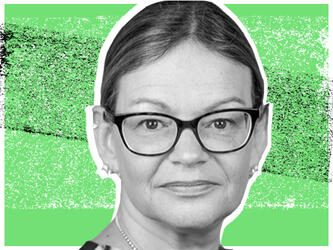Report highlights lack of inclusion in social research

The study, 'Far to Go: Diversity and inclusion in UK social research', found that social researchers from marginalised groups tend to have more negative experiences of working in the profession, while inclusive research practices can be hampered by issues such as cost.
Two-fifths ( 40%) of social researchers who responded to an online survey disagreed that social research commissioners provide adequate funding to ensure projects are inclusive, while 68% agreed that the UK social research sector is ‘far less diverse’ than society generally.
Only 13% of social researchers felt that people from ethnic minority groups are well represented at all levels within their organisation, falling to 10% among ethnic minority researchers, according to the report.
While around two-thirds ( 67%) of social researchers agreed that women are well represented at all levels of their current organisation, the study found variation between the sectors – 56% in academia agreed, compared with 80% in the third sector.
The research also found that half ( 56%) of respondents agree that ‘minority groups are able to make their voices heard’ through social research, while fewer than half ( 41%) agree that ‘the methods social researchers tend to use are inclusive of diverse groups'.
Respondents who identified with having three or more ‘marginalised characteristics’ reported experiencing a less supportive and inclusive workplace culture across all indicators.
In this study, marginalised characteristics included: people who identify as women; people from a black or other ethnic minority background; those who practice a minority religion; members of the LGBTQ+ community; and people who have a physical disability, mental health condition or are neuro-divergent.
Victoria Boelman, director of research at The Young Foundation, said: "This research has thrown into sharp relief many of the issues that lots of us within the profession have been grappling with for some time.
"As the largest-scale study of equality and diversity in the social research profession to-date, it’s all the more vital that the social research ecosystem rallies around it to tackle these issues and commit to creating a profession which is truly diverse and inclusive, and which gives greater voice to those we represent."
Among the recommendations for organisations and individuals in the social research sector, the report advises building a ‘culture of reflection, support and transparency’ while not placing the burden of creating change on those most negatively affected.
It also recommends that organisations develop action plans that involve staff in design and implementation, build on best practice within the profession and from other industries, are explicitly endorsed by senior leadership, can be embedded in organisational policies, processes and practice, and have a linked framework for measuring and reporting progress.
Ailbhe McNabola and Diarmid Campbell-Jack, co-chairs at the Social Research Association, said: "We hope this report will mark a new era in taking action on diversity and inclusion, opening up conversations on the issues across the profession, and bringing about many changes for the better. We also aim to play our part in these conversations and changes."
Methodology
The report used an online survey to collect the views of 979 people who identified as working in social research across the UK, during January and February 2021. The survey link was circulated via the SRA membership, Young Foundation networks, the Government Social Research (GSR) Network, the Civic University Partnership and on social media.
The survey was followed by 21 interviews with individuals who identified that their experiences had been shaped by marginalised characteristics, and five with organisational representatives.

We hope you enjoyed this article.
Research Live is published by MRS.
The Market Research Society (MRS) exists to promote and protect the research sector, showcasing how research delivers impact for businesses and government.
Members of MRS enjoy many benefits including tailoured policy guidance, discounts on training and conferences, and access to member-only content.
For example, there's an archive of winning case studies from over a decade of MRS Awards.
Find out more about the benefits of joining MRS here.














0 Comments